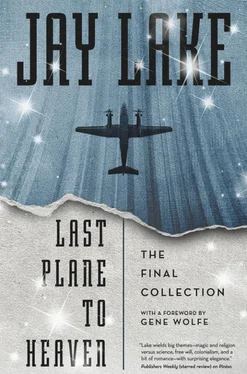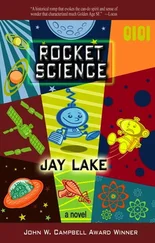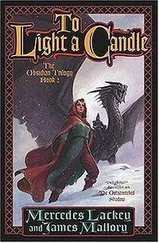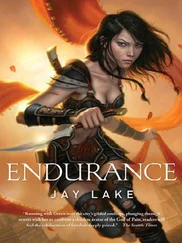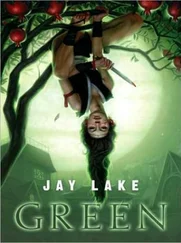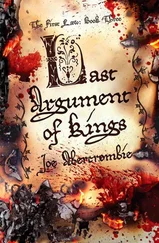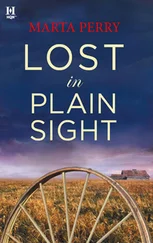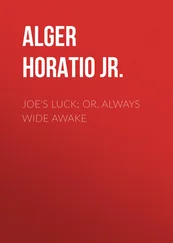“Really?” She smiled sweetly at Addison, though there was nothing but menace in those pearly teeth for a moment. Addison wondered if she, too, were almost-fanged. “Did you see the body?”
“N-no. He died in the hospital, and the funeral was closed casket.”
The smile was positively evil. “If you dug it up, you’d find a dead wolf and a few stone of rags and feathers. He hasn’t come home yet, but he will. I would know.”
“And I would know if he was alive!” Addison shouted, suddenly enraged. “He never was going to come home, damn you. That’s why he told me all the stories, and bought me a plane ticket before he died, and spent all his time filling me with ideas about wearing my clothes inside out and carrying pebbles in my pockets! He was crazy and I love him.”
“You’re not wearing your clothes inside out,” the girl pointed out quite reasonably, ignoring Addison’s anger.
“And the only rocks I have are inside my head, I swear.” Addison huffed, trying to settle down. She had not come this far to fight with some imaginary twin. “He’s dead, girl-whoever-you-are-in-waiting. I watched him slip away. Colon cancer, and they took it out of him three times until he was shitting in a plastic bag and eating nothing but oatmeal. Whatever a mabkin is, no one noticed on the operating table. Or in the CAT scans.”
“The crab disease.” This was the first time the girl seemed taken aback. “A mabkin, in the presence of a grimalkin, was struck down by the crab disease…”
Grimalkin? An old cat. The CAT scan? Riddles, and more stupid wordplay. Addison stuck to the point, for fear of talking in mystic circles. “What, you people don’t get cancer here?”
“We die of nothing but grief or the sword. Sometimes at the same moment.”
“Grandfather Locke died on the sword of cancer, then. But I held his hand when he was done. I don’t think he grieved.”
“Did he call for Mother?” the girl asked gently.
“Yes,” said Addison, and burst into tears.
* * *
Later they sat close in front of the primus stove while Addison boiled water for ginger tea. The girl, who would answer to “Door” but called herself nothing that Addison could determine, had been delighted with a white chocolate macadamia Clif Bar. Their shadows lengthened eastward, and Addison kept wondering if she would camp up here. She wanted to see where Door would go at nightfall, because experience had already taught her about the rapid descent of frost on these hills.
Door seemed unconcerned about the passage of time, or really, anything else other than Addison’s camping gear.
“You carry fire with you in a little bottle. This is so much more clever than wooden sticks.”
“I have matches, too,” Addison admitted.
“Surely. Monkeys are clever.”
“I am not a monkey.”
“Not you.” That almost-fanged smile. “But you were raised among them, and you have brought back their clever ways.”
“I’ve brought back something else, too,” Addison admitted. She touched her chest, just below the right clavicle.
“Yourself, of course.” The later the day grew, the more feral Door seemed to become. At noon she’d been almost reserved. Now she was tricksy.
Ignoring the chilly air, Addison slipped out of her fleece vest, unbuttoned her wool shirt, and dropped the shoulder on her thermal top, tugging the sports bra’s band with it. “See this,” she asked, pointing at a red-lipped seam on her neck and another on her chest.
“I could do much better.” A copper blade shaped like a rhododendron leaf appeared as if from nowhere in Door’s hand.
“Stop it,” Addison said, slapping the girl’s wrist. Feral, feral.
The touch caused another spark to leap between them.
With that, the blade vanished. Door cocked her head, looking for all the world like a curious robin. “What, then?”
“It’s a chest port. I start chemotherapy next week back at home.”
Door looked puzzled.
“Cancer. The crab disease.” Addison sighed. “What killed Grandfather Locke. It’s trying to kill me.” She wasn’t supposed to think of it that way, her therapist had been very insistent.
Now Door seemed completely taken aback. Addison wondered if the other girl’s preternatural confidence faded with the light. “You have come to the Doors bearing the crab disease?”
“Well… yes?”
“Some come here seeking life eternal. Some come here seeking the true death of the soul, for fear of the same thing. Some come seeking riches. Or a lost love. What do you hope for here?”
Whatever Grandfather Locke set me to find, Addison thought, but did not say. Her fingers brushed her chest where the port implant ached. “He… He always told me I would discover where I belonged.”
“You belong wherever you are,” Door said simply. For the first time, Addison thought she heard compassion in the other girl’s voice, but when she looked up, all she saw was the gleam of the Primus flame in Door’s eyes. It was like staring into a tiny, liquid hell.
“I don’t want to die,” Addison whispered.
“Ah, life eternal.” The smile flashed, even more fanged in the encroaching gloam. “We don’t have that here. Chronos is long since fallen. We merely abide endlessly without the benefit of time.”
“Cancer is a disease of time.”
“ Life is a disease of time.”
Another touch, their third, and on this occasion the spark was like summer lightning. Door drew Addison into a close embrace. Like hugging herself, but not. Like masturbating, but not. Like a mirror so close one could step into it.
“Would you go Below?” Door whispered in her ear. Inside Addison’s head.
“Would I come back?”
“You would carry the disease of time into the Quiet Lands. Is that what you want?”
More of Grandfather Locke’s words came to her then.
Be my sword, little girl
Carry over the ocean my will
To the Mother of us all
So that she may someday lie still
Had she only ever been his pawn as well? Was even the cancer her morfar’s gift to her? “I would not wish this on my worst enemy if I had one,” Addison whispered to herself.
“Time is everyone’s worst enemy,” Door whispered back from within. “The sword of ruin. That is why it does not pass beneath these hollow hills.”
“Cancer is the sword of ruin, thrust through the body.” Addison thought back on Door’s words. “Both grief and the sword.” The disease of time, indeed.
“Your story will sweep open the doors,” Door replied. “They may never shut again.”
Did she want to? Who were the people under the hill to her? Mabkin, her grandfather Locke’s folk, but he’d never spoken of them. Just filled her head with stories, filled her heart with his death, and filled her hand with a ticket to elsewhere.
Addison wasn’t certain what choice she was making. To go home and slowly poison herself, while poisoning the cancer a little faster. Or to pass beneath these copper doors and come to face her great-grandmother, who lived outside time.
Sooner pass between the pages of a book.
You always did want to pass between the pages of a book, girl, her grandfather Locke said. And someone must break the chains under the hill, someday.
Though Door’s fingers barely touched the copper, the slabs swung upward as if pressed forward by hands the size of houses. They smashed into the ground on each side with an echo that Addison felt deep in her bones. The inner faces of the doors were decorated just as ornately as the outside, though in the last of the twilight, the carvings seemed alive, fields of men fighting flowers while winged archers sailed overhead laughing.
Читать дальше
